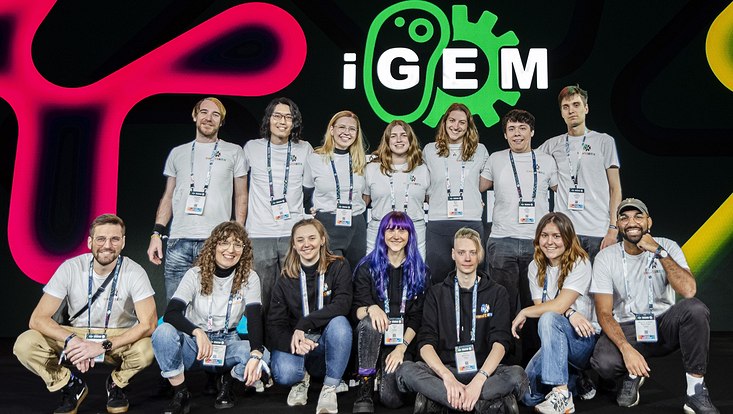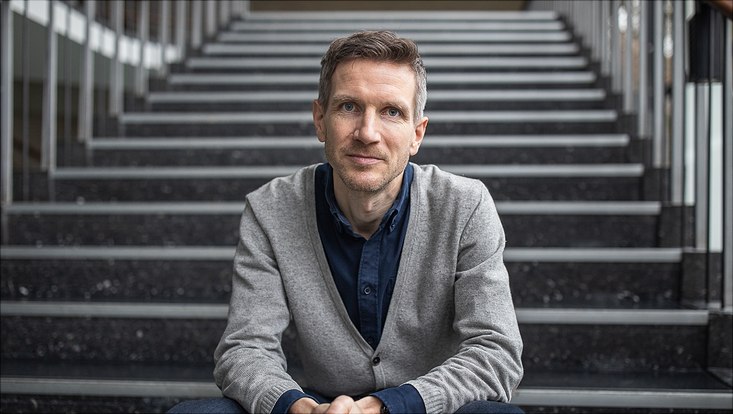Battle against resistant bacteriaUniversität Hamburg Students Awarded in the iGEM Competition 2023
14 December 2023, by Newsroom editorial office

Photo: Universität Hamburg / Federle
More and more bacteria are becoming resistant to antibiotics. A team of 15 students at Universität Hamburg has found an innovative alternative way to eliminate pathogens. Their idea was awarded a special prize for best presentation and a gold medal at the iGEM Competition Grand Jamboree 2023.
Students from the Faculty of Mathematics, Informatics and Natural Sciences have been involved in the International Genetically Engineered Machine (iGEM) competition for a number of years. It is the largest international competition for students in the field of molecular biology.
Modified protein brings agents into the bacterium
The student researchers work in a team, using new approaches in synthetic biology to contribute solutions to global problems. This year, the interdisciplinary Hamburg team has been working on the transFERRITIN project, which examines how bacterial-disease treatments can be designed in a way that removes the need to use antibiotics. The often unjustified and nonspecific use of these drugs has led to more and more bacteria becoming resistant.
“We have developed what is known as a drug delivery system,” explains Sebastian Federle, a participant in the project. “Specifically, we have modified ferritin, the iron-storing protein found in the body, so that it can be used to deliver plant-based antimicrobial substances into the bacterium.” When these agents are released, the bacterium is neutralized.
This idea convinced the jury at the Grand Jamboree in Paris: the Hamburg team was awarded not only the gold medal but also Best Presentation in the Overgraduate category and was also nominated for Best Therapeutics Project.
Interested students wanted!
The iGEM team works under the leadership of Prof. Dr. Michael Kolbe and Dr. Mirko Himmel at the Centre for Structural Systems Biology (CSSB) in the Science City Hamburg-Bahrenfeld. Each year, the group chooses the project topic and also deals with the funding. The office of the dean in the Faculty of Mathematics, Informatics and Natural Sciences sponsored the team’s participation in the iGEM competition.
“We dedicate ourselves to a new and exciting challenge every year and are always happy to welcome new participants,” says Federle. It is important to the group that all fields of study and year groups are welcome, because the iGEM project is not limited to laboratory-based research; it also includes tasks such as public relations, applying for funding, and building networks—for example with patent attorneys and patients. Interested students can get in touch via email(igem.hamburg"AT"gmail.com).


